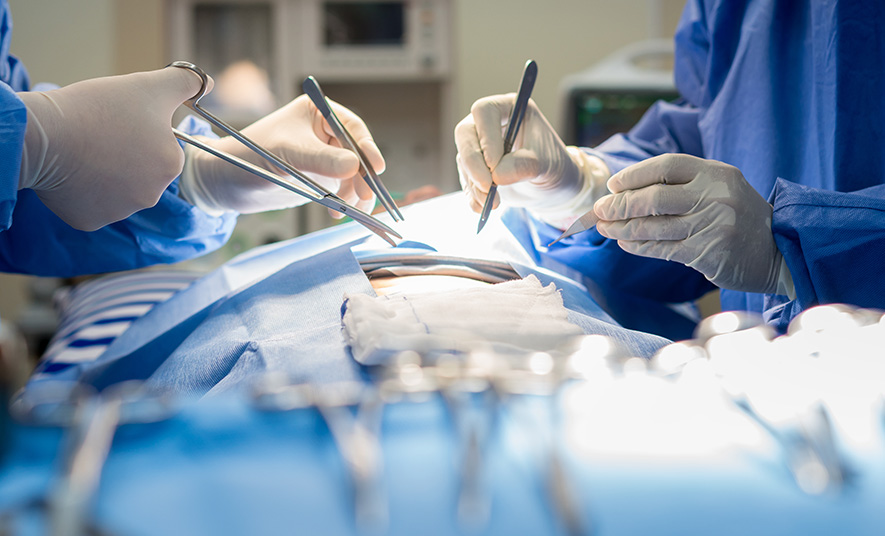
Perirectal Abscess
A perirectal abscess, or an abscess located in the anus, is an infected cavity that has become filled with pus. Pain is common for patients with this condition, in addition to other symptoms like constipation and fatigue. This condition requires swift diagnosis and treatment. At Arizona Hemorrhoid & Anorectal Center, we have over 10 years of experience treating anorectal conditions, allowing us to work more quickly and effectively toward treatment.
Information About Perirectal Abscess
What is a Perirectal Abscess?
Perirectal abscess is a condition caused by an infection, typically of the anal glands, that occurs within the anal canal. The anal canal is part of the large intestine, and it spans between the anus and the rectum. The folded nature of the tissue lining in the anal canal can cause blockages to form, trapping bacteria and subsequently promoting infection. The infection can increase in severity if left untreated, eventually producing intense swelling and the formation of an abscess filled with pus. This condition requires a surgical procedure to drain the abscess, rid the area of infection, and reduce discomfort for the patient. Aalok Sahai, MD, and Paul Tender, MD, and Rohit Sahai, our expert surgeons, have a wealth of experience with treating this condition and ensuring increased comfort for patients. He is trained to provide swift and effective treatment.
Perirectal Abscess Signs and Symptoms
Pain is the primary symptom associated with a perirectal abscess, and it is often severe in nature. This condition can cause significant discomfort for patients, especially if the condition is left untreated for a significant period. As with any infection, symptoms can worsen over time, becoming more pronounced. A dull pain may be noticed initially, with the severity increasing to a much sharper pain during bowel movements. The pain may become more pronounced when the patient is moving or sitting, which are activities that cause increased pressure to the area. Because it is an infection, patients may develop other symptoms such as fever, chills, and fatigue.
Early treatment with our Board-Certified Anorectal Experts is essential in preventing more severe symptoms due to the nature of the infection. If the condition is left untreated, the infection may spread into tissues surrounding the area. An abscess that remains untreated can also lead to the development of a fistula, or a connection that your body forms between the skin and the inside of the anus. Recurring infections can occur due to the fistula trapping bacteria. A fistula can only be removed through surgical intervention.
Perirectal Abscess Treatment
We offer both surgical and in-office abscess drainage based on your condition. Our experts will determine which option is suitable for the patient and their needs. Antibiotics may be prescribed to reduce the chance of a recurring infection.
Surgical Drainage
If an abscess is large or deep in nature, surgery may need to take place in a hospital setting in order to remove the trapped material safely. This is also typically required for abscesses that produce fistulas. Surgical abscesses should be drained promptly after diagnosis to avoid further complications.
In-Office Drainage
More superficial abscesses can be drained in the office. Superficial abscesses that are closer to the surface of the skin can often be drained in an outpatient or office setting. These procedures are relatively quick and typically involve the use of a local anesthetic to numb the area before a small incision is made to release the buildup of pus. Draining the abscess helps reduce pain, swelling, and pressure, and allows the body to begin healing.
What to Expect After Perirectal Treatment
After the drainage, patients are given instructions for at-home care, including how to keep the area clean and monitor for signs of infection. Patients are typically advised to avoid strenuous activity and follow up with their provider to ensure proper healing and address any potential complications, such as the formation of a fistula.
How to Prevent Abscesses
To help prevent abscesses, it is important to maintain proper hygiene and keep the skin clean, especially in areas prone to friction or moisture. It is also important that you clean and protect minor cuts or scrapes to reduce the risk of infection. Avoid sharing personal items like razors or towels, and do not pick at pimples or ingrown hairs. For those with underlying health conditions, managing chronic illnesses such as diabetes can also lower the risk of abscess formation.
Frequently Asked Questions about Perirectal Abscesses
What should I avoid with a perirectal abscess?
How long does it take for a perirectal abscess to heal?
What is the most common cause of perirectal abscess?
Does sitting worsen perianal abscess?
What is the best sleeping position for perianal abscess?
Can a perirectal abscess heal on its own?
What complications can occur if a perirectal abscess is not treated?
What is the difference between a perianal and a perirectal abscess?
Can perirectal abscesses come back?
Our Hemorrhoid Experts
Board Certified Surgeons
Our colorectal experts and experienced surgeons are dedicated to providing outstanding colorectal care over multiple issues within Colon and Rectal Health. We are proud to offer full treatments of all grades of hemorrhoids and anorectal conditions to meet the needs of each of our patients.

Aalok Sahai, MD
Board Certified Colorectal Surgeon

Paul Tender, MD
Board Certified Colorectal Surgeon

Rohit Sahai, MD
General Surgeon & Surgical Oncologist
Schedule a Consultation
If you are interested in learning about our perirectal abscess treatment options, please contact Sonoran Surgical in Chandler and San Tan Valley, Arizona today at (480) 646-8440. You can also fill out our contact form to schedule an appointment.

